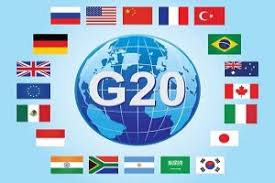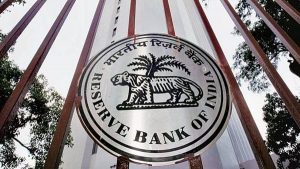Today Current Affairs: 1st July 2021 for UPSC IAS exams, State PSC exams, SSC CGL, State SSC, RRB, Railways, Banking Exam & IBPS, etc
Table of Contents
National Disaster Management Authority (NDMA):

The Supreme Court directed the National Disaster Management Authority (NDMA) to frame guidelines for payment of ex-gratia compensation to family members of persons who succumbed to COVID-19.
- It also directed the NDMA to ascertain within six weeks ex-gratia amount that can be paid to the family members of those who died due to the infection.
- The court’s order came in response to a plea seeking ex-gratia of four lakh rupees each to the families of all those who succumbed to the virus.
NDMA:
- Parent body: Ministry of Home Affairs.
- Primary Objective: To coordinate response to natural or man-made disasters and for capacity-building in disaster resiliency and crisis response.
- NDMA was established through the Disaster Management Act enacted by the Government of India in 2005.
- The Prime Minister is the ex-officio chairperson of the NDMA, who chairs a 9-member board.
- The remainder of the board consists of members nominated based on their expertise in areas such as, planning, infrastructure management, communications, meteorology etc.
- The day-to-day management of the agency is overseen by the office of the Vice Chair.
India’s First Indigenous Drone Defence Dome : “Indrajaal”.

Hyderabad-based technology R&D firm Grene Robotics has designed and developed India’s first indigenous drone defence dome called “Indrajaal”.
- The drone defence dome has the capability to autonomously protect an area of 1000-2000 sq km against the aerial threats by assessing and acting on aerial threats such as Unmanned Aerial Vehicles (UAVs), loitering munitions, and Low- Radar Cross Section (RCS) targets.
- The ANTI-UAV systems will not only provide protection to defence bases but it will be beneficial for linear infrastructures like international borders against advanced weaponry.
- Salient features of Indrajaal
- Real-time situational awareness
- Integrated and Intelligent meshed network
- Integrated all current weapons suite and infrastructure
- Honeycombed cell structure for seamlessly built
- Synergic combination of 9-10 technologies
- 24×7 persistent and autonomous monitoring, action and tracking
- The path-breaking development is imperative because manual weapons and point-based defence systems can’t defend modern warfares, which are operated by Artificial Intelligence (AI) and robotics.
- For the first time in India and many times, globally rogue forces have adopted cutting-edge technologies such as UAVs, Smart Swarms, etc.
- Jammu Air Base on June 27th was attacked by such technologies to drop explosives next to the Mi-17 hangar.
- Capable of real-time situational awareness, Indrajaal comprises all current weapons suite and infrastructure along with a honeycombed cell structure to provide a seamlessly built over a combination of 9-10 technologies for 24×7 persistent monitoring, tracking and action.
Accredited Investors:

Market regulator Securities and Exchange Board of India (SEBI) introduced a framework for accredited investors.
- SEBI defines accredited investors as “a class of investors who may be considered to be well informed or well advised about investment products”.
- The accredited investors could be individuals, HUFs, sole proprietorships, family trusts, partnership firms, trusts and body corporates based on financial parameters.
- Anyone is eligible to become an accredited investor provided their annual income stands at Rs 2 crore or their net worth pegged at Rs 7.5 crore and financial assets should be at least 3.75 crore.
- “Accreditation Agencies” like subsidiaries of depositories and specified stock exchanges, and/or any other specified institutions can offer this title for one to become an accredited investor.
- Accredited investors will have the flexibility to participate in investment products with an investment amount lesser than the minimum amount mandated in the Alternative Investment Funds (AIF) Regulations and Portfolio Managers (PMS) Regulations.
- The Alternative Investment Funds for accredited investors where each investor invests minimum investment amount of Rs 70 crore may avail relaxation from regulatory requirements such as portfolio diversification norms, conditions for launch of schemes and extension of tenure of the AIF.
Independent Directors:

The Securities and Exchange Board of India (Sebi) overhauled the norms pertaining to the appointment, removal, and remuneration of independent directors.
- The appointment, re-appointment, and removal of independent directors shall be through a special resolution, which requires 75 per cent votes in support instead of 51 per cent, as in the case of an ordinary resolution.
- Also, the nomination and remuneration committee (NRC), which selects candidates for appointment as independent directors, will be required to have two-thirds IDs, as against the existing requirement of a majority.
- Further, the NRC will have to disclose and justify the skill-sets while selecting a candidate.
- Key managerial personnel and their relatives or employees of the promoter group will have to observe a three-year cooling-off period before they get appointed as an independent director.
- Sebi has also tightened rules related to the resignation of independent directors. The regulator has said the new framework will come into play from January 1.
Global Cyber Security Index (GCI) 2020:

According to a United Nations report released, India has jumped 37 places to 10th position in the Global Cyber Security Index (GCI) 2020.
- The GCI is a composite index created, analyzed and published by the International Telecommunication Union (ITU), a specialized agency of the United Nations.
- It measures the commitment to cybersecurity of its 194 member countries to raise cybersecurity awareness.
- The latest report is the fourth GCI edition by the ITU, the first version of which was launched six years ago.
- Each country’s development or engagement is assessed along five pillars – (i) Legal measures, (ii) Technical measures, (iii) Organizational measures, (iv) Capacity development, and (v) Cooperation- and then aggregated into a composite score.
Global rankings:
- The top rank in the GCI was achieved by the US with a score of 100.
- The UK and Saudi Arabia finished second, tied for next place with a score of 99.54.
- In the Asia Pacific region, South Korea and Singapore are on top with a score of 98.52, which ranks fourth globally.
- Other countries at the top of the index include Russia, the United Arab Emirates and Malaysia (98.06) at fifth place, Lithuania at sixth, Japan at seventh and Canada, France and India at the subsequent positions.
- Among other countries, Turkey (97.49) was ranked 11th, Germany (97.41) at 13th, China (92.53) at 33rd and Israel (90.93) at 36th position.
India’s ranking
- India ranked 10th in the fourth edition of the Global Cyber Security Index 2020 (GCI), a significant jump of 37 places from its previous GCI rank in 2018.
- India also ranks fourth in the Asia-Pacific region.
Enforcing Contracts Portal:

The portal aims to promote ease of doing business and improve ‘Contract Enforcement Regime’ in country
- It is envisioned to be a comprehensive source of information pertaining to the legislative and policy reforms being undertaken on the “Enforcing Contracts” parameters
- It includes the latest data related to the functioning and disposal of commercial cases in the Dedicated Commercial Courts of Delhi, Mumbai, Bengaluru and Kolkata. These Dedicated Commercial Courts have been established for speedy resolution of commercial disputes.
- The Doing Business Report of World Bank Group benchmarks business regulations across 191 economies of the world.
- The Ease of Doing Business (EoDB) index is a ranking system of economies across 11 areas of business regulation.
- The “Enforcing Contracts” indicator is one such essential area that measures time and cost to resolve a standardized commercial dispute as well as a series of good practices in the judiciary.
- Currently, only the cities of Delhi and Mumbai are under the purview of the Ease of Doing Business survey by World Bank.
- Kolkata and Bengaluru are likely to be included in the Doing Business Report in future.
BharatNet Project:

The Union Cabinet approved a Viability Gap Funding support of up to Rs. 19,041 crore (Out of the total expense of Rs. 29,430 crore) for the implementation of the BharatNet project through Public-Private Partnership model.
- Public-Private Partnership (PPP) involves collaboration between a government agency and a private-sector company that can be used to finance, build, and operate projects. The PPP Model in this critical infrastructure of Telecom is a novel initiative.
- Viability Gap Funding (VGF) means a grant one-time or deferred, provided to support infrastructure projects that are economically justified but fall short of financial viability.
- It is the world’s largest rural broadband connectivity programme using Optical fibre. And also a flagship mission implemented by Bharat Broadband Network Ltd. (BBNL).
- BBNL is a Special Purpose Vehicle (SPV) set up by the Government of India under the Companies Act, 1956 with an authorized capital of Rs 1000 crore.
- It is a highly scalable network infrastructure accessible on a non-discriminatory basis, to provide on demand, affordable broadband connectivity of 2 Mbps to 20 Mbps for all households and on demand capacity to all institutions, to realise the vision of Digital India, in partnership with States and the private sector.
- It is being implemented by the Department of Telecommunication under the Ministry of Communications.
- National Optical Fibre Network (NOFN) which was launched in October 2011 was renamed as Bharat Net Project in 2015.
- NOFN was envisaged as an information superhighway through the creation of a robust middle-mile infrastructure for reaching broadband connectivity to Gram Panchayats.
- In 2019, the Ministry of Communications also launched the ‘National Broadband Mission’ to facilitate universal and equitable access to broadband services across the country.
Current Extension of BharatNet:
- The project will be extended to all inhabited villages beyond the gram panchayats in 16 States which are:
- Kerala, Karnataka, Rajasthan, Himachal Pradesh, Punjab, Haryana, Uttar Pradesh, Madhya Pradesh, West Bengal, Assam, Meghalaya, Manipur, Mizoram, Tripura, Nagaland and Arunachal Pradesh.
- The revised strategy will include creation, upgrading, operation, maintenance and utilisation of BharatNet by the private sector partner, who will be selected by a competitive international bidding process.
- The selected private sector partner is expected to provide reliable, high speed broadband services as per predefined Services Level Agreement (SLA).
G20 Foreign Ministers Meeting:

Italy hosted the G-20 foreign ministers’ meeting to discuss the fight against Covid-19 and how to speed up the recovery of the global economy and boost sustainable development in Africa.
- Currently, Italy holds the presidency of G-20. The G-20 summit is scheduled to be held in Italy in October, 2021.
India is expected to hold the presidency of the G-20 in 2023.
About the Meeting:
- On Covid-19:
- Criticized China and Russia for engaging in vaccine diplomacy.
- Vaccine diplomacy is the branch of global health diplomacy in which a nation uses the development or delivery of vaccines to strengthen ties with other nations.
- Promoting a science-based holistic One Health approach.
- ‘One Health’ is an approach to designing and implementing programmes, policies, legislation and research in which multiple sectors communicate and work together to achieve better public health outcomes.
- On Climate Change:
- Increased climate variability and extreme weather events impact agriculture output and are among the forces driving the rise in global hunger.
- On Africa:
- The Covid-19 pandemic, conflict, drought, economic woes, and extreme weather are reversing years of progress.
- In the whole of Africa, 250 million people were experiencing hunger, which is nearly 20% of the population (as of 2019).
India’s Current Account surplus of 0.9% of GDP in FY21: RBI:

As per data released by Reserve Bank of India (RBI), India has reported a current account surplus of 0.9 per cent of GDP in the Financial Year 2021 (FY21) amid the covid-19 pandemic. In 2020, it had reported current account deficit of 0.9 per cent
- India’s current account deficit has increased to USD 8.1 billion or 1 per cent of GDP for March quarter in 2021 as compared to the surplus of USD 0.6 billion or 0.1 per cent of GDP in 2020 for same period.
- India reported a deficit of 0.3 per cent in December quarter of 2020.
- As per RBI, current account balance reached into surplus territory because of sharp contraction in trade deficit to USD 102.2 billion from USD 157.5 billion in 2019-20.
- Net invisible receipts were low in FY21 because of an increasing outgo of overseas investment income payments and decrease in net private transfer receipts.
- External commercial borrowings by India Inc recorded an inflow of USD 0.2 against 21.7 billion in 2019-20.
- India witnessed an accretion of USD 87.3 billion to foreign exchange reserve on balance of payments basis.
- Current account deficit in March quarter was high on account of high trade deficit and low net invisible receipts.
- Private transfer receipts, representing remittances by Indians employed overseas, witnessed increase of USD 20.9 billion.
- It was higher by 1.7 per cent from 2020 level.
- Net outgo from primary income account, representing net overseas investment income payments, increased to USD 8.7 billion. It was USD 4.8 billion in 2020.
Ecosystem Services:

The Guindy National Park provides a number of ecosystem services to the people of Chennai, Tamil Nadu.
- Ecosystem services are the direct and indirect contributions of ecosystems to human well-being.
- It is India’s eighth-smallest national park and one of the very few national parks located inside a city.
- It is located in the heart of Chennai’s metropolitan area.
- It is one of the last remnants of the tropical dry evergreen forests of the Coromandel Coast.
- About 22 acres of the Guindy National Park has been carved out into a park known as the Children’s Park for ex-situ conservation.
- Guindy Snake Park is next to Guindy National Park. It gained statutory recognition as a medium zoo from the Central Zoo Authority (CZA) in 1995.
- In 1978 the small area, popularly known as Guindy Deer Park, was declared as a national park.
- It contains more than 30 species of trees and a number of century old gigantic Banyan Trees.
- It has a significant population of black bucks, spotted deers, jackals, varieties of snakes, over 100 species of birds and over 60 species of butterflies.
UN Report On International Tourism:

According to the report by UNCTAD and UN’s World Tourism Organisation (WTO), International tourism arrivals are set to stagnate in 2021, except in some Western markets
- As per report, stagnation would result into losses of $2.4 trillion.
- It highlights, tourism sector is not expected to rebound fully until 2023.
- It underlines, COVID-19 vaccination and certificates are key to restore confidence in foreign tourism. Vaccination will provide a lifeline for several countries including small island states which rely mainly on tourism sectors to provide jobs.
- According to it, international arrivals plunged by 73% in 2020 from pre-pandemic levels in 2019. It resulted into estimated losses of $2.4 trillion in tourism and allied sectors.
- Report expects for certain recovery in second half of 2021 at least for North America and Europe.
- Report has set three scenarios for 2021, showing international tourism arrivals forecast to decrease by 63% to 75% from pre-pandemic levels.
- It will cause losses of about $1.7 trillion to $2.4 trillion.
Tax Deducted At Source (TDS):

A new Tax Deducted at Source (TDS) rule is coming into effect from July 1, 2021.
- Under the new rules, non-filer of income tax for past two financial years will be subjected to higher taxation.
- TDS or TCS will be charged at double rate specified in relevant provision of Income Tax Act or 5 per cent.
- Provisions of this section will be applicable to TDS deductions on resident payments including shareholder dividends and service payment to vendors rent.
- However, it will not be applicable on salary, winnings from lottery or crossword, horse race, trust income and cash withdrawals.
- Such non-filers will bear higher tax deducted at source (TDS) and tax collected at source (TCS).
- Higher tax will be levied on them if such tax deduction will amount to Rs 50,000 or more in each of past two years.
Green Freight Corridor-2:

Ministry of Shipping launched the maiden voyage under Green Freight Corridor-2 on June 30, 2021.
- Green Freight Corridor-2 is a coastal shipping service.
- Voyage was launched from Cochin port to Beypore and Azhikkal ports located in north Kerala.
- First voyage service was launched in line with ministry’s plans to improve connectivity and synergies between major & non-major ports by promoting coastal trading.
- This step is also aiming to
- Create intermodal & sustainable customer solutions,
- Improve use of waterways,
- Cut road & rail traffic and
- Cut logistical expenditures.




